The WHO Country Office has achieved a significant milestone by successfully training 28 formally appointed Preventing and Responding to Sexual Exploitation, Abuse, and Harassment (PRSEAH) focal points from the Ministry of Health (MoH) at the national and state levels. This initiative has expanded the network of dedicated PRSEAH part-time focal points from WHO and MoH to 55.
The humanitarian crisis in South Sudan has escalated due to prolonged natural and man-made disasters affecting its population, leading to its classification as a high-risk country for sexual exploitation, abuse, and harassment. The combination of extreme poverty, displacement from ongoing conflict, and the significant presence of humanitarian workers, including peacekeepers, exacerbates these vulnerabilities.
The WHO country office in South Sudan is committed to fostering an organizational culture of zero tolerance for sexual exploitation, abuse, and harassment. Under the coordination of the WHO PRSEAH Coordinator, the office has established a strong mechanism for PRSEAH and coordinated these PRSEAH actions across its various programmes and operations nationwide.
In the past two years, WHO also built a strong network of 27 trained part-time WHO Focal Points, including at least 2 Focal Points in each of the 10 states of South Sudan, and in each of the Country Office Clusters. In 2023 and 2024, a total of 214 in-person PRSEAH activities (awareness raising and training sessions) were conducted nationwide, reaching 12,469 people directly, including WHO and partner personnel (MoH and NGOs) and community members.
One of the PRSEAH strategic objectives requires WHO country offices to establish a strong partnership with the Ministry of Health to facilitate the implementation of PRSEAH activities, and particularly in emergency situations. In this context, WHO received the appointment of PRSEAH focal points from the national and state MoH, who would work in close collaboration with the WHO counterparts to facilitate the coordination of such activities.
The MOH has formally nominated 28 focal persons from the national MOH and each of the 10 states and 3 administrative areas. This initiative marks the MoH’s strong commitment and engages the state-level Ministries, which is an important step forward.
To facilitate the work of the newly appointed MoH Focal Points, a 3-day Orientation meeting was convened together with the 27 WHO Focal Points. The meeting focused on the PRSEAH focal persons in the field and oriented them on their roles and responsibilities and how to address and manage PSEA challenges.
The purpose of the event was to review the legal framework of the Code of Conduct and sexual misconduct, increase the knowledge of PRSEAH, including definitions and practical examples of PRSEAH, learn about confidential reporting channels and investigation processes, including whistleblower protection, and develop an Action Plan on how to join efforts between WHO and MoH implementing PRSEAH in our operations, especially in emergency response.
During the meeting, members of the South Sudan General Medical Council had an extensive panel discussion regarding the ethical conduct of medical professionals and the regulatory framework applicable in South Sudan in this regard.
In his keynote address of the workshop, Mr. George Otto, the Head of the Resident Coordinator’s Office in South Sudan, emphasized the critical role of the UN in integrating PSEA into all programming and activities. He stated, ” The United Nations is committed to fighting sexual exploitation, abuse, and harassment within its operations and creating an environment where everyone feels safe, including the beneficiaries and our personnel as well.”
“The nomination of the focal points from the Ministry of Health demonstrate the strong commitment from the Ministry of Health towards preventing sexual exploitation and abuse amongst its workforces,” said Dr Santo Malek, Director General of International Health and Coordination at the National Ministry of Health.
Dr. Humphrey Karamagi, the WHO Representative in South Sudan, emphasized that “engaging the Ministry of Health is a crucial step toward fostering a safe and respectful environment within humanitarian and development programs, especially at state levels.”
The meeting reaffirmed the importance of these discussions and the collective responsibility to tackle SEAH. Through collaboration, training, and sustained commitment by the Government and the UN, South Sudan can make great strides in protecting vulnerable populations and ensuring that all individuals in the country are treated with dignity and respect.
Technical contact:
Diana Dominyak | Coordinator | Prevention and Response to Sexual Misconduct (PRS) | +211 92 054 2321

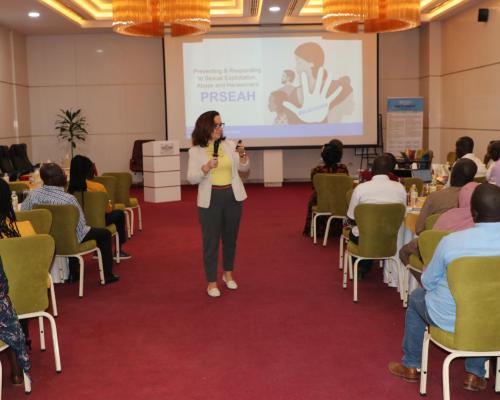

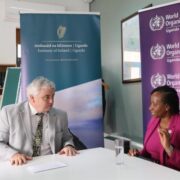
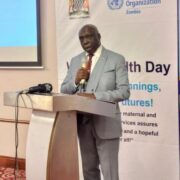
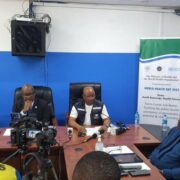

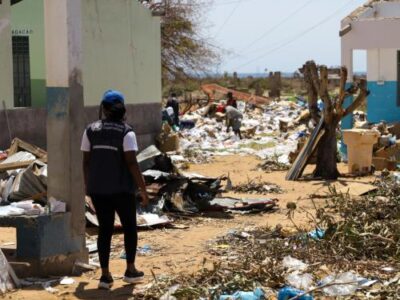
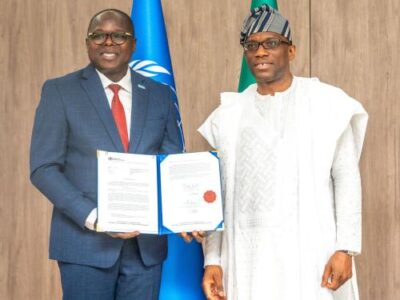
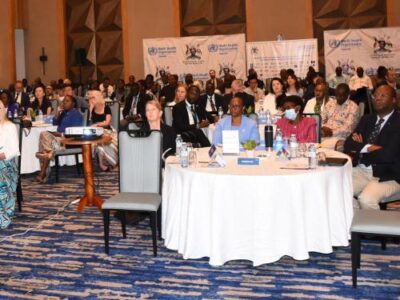

Comments